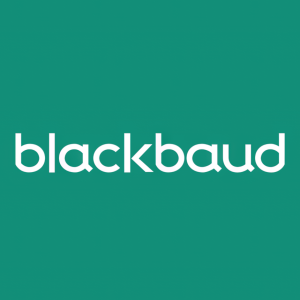Special Report Uncovers New Trends in Spontaneous Giving
Rhea-AI Summary
The Blackbaud Institute has released a new report titled 'First Impressions: Spontaneous Giving Insights', revealing key trends in spontaneous giving. The study defines spontaneous donors as those making unplanned first-time donations within the last 12 months. Key findings include:
- Spontaneous giving is 25% higher among Millennial, Gen Z, and Black donors
- 72% of spontaneous gifts went to familiar organizations
- Gen Z primarily learns about giving opportunities through social media
- 75% of spontaneous donors prioritize trust, reputation, and ease of donation for repeat giving
- 44% of potential repeat donors want regular updates
The report aims to help nonprofits secure and retain spontaneous givers, particularly younger donors and donors of color.
Positive
- Report provides valuable insights for nonprofits to attract and retain spontaneous donors
- Identifies higher spontaneous giving rates among younger generations and minority donors
- Reveals factors influencing repeat donations, helping organizations improve retention strategies
- Aligns with industry trends and complements other research on revitalizing giving in America
Negative
- None.
News Market Reaction 1 Alert
On the day this news was published, BLKB gained 1.89%, reflecting a mild positive market reaction.
Data tracked by StockTitan Argus on the day of publication.
"First Impressions: Spontaneous Giving Insights" Reveals the Secrets to Securing and Retaining Spontaneous Givers, Particularly Younger Donors and Donors of Color
"Spontaneous giving may be challenging to predict – but it's not random," said Lori Poer, Director of the Blackbaud Institute. "Our data shows that spontaneous giving plays a more important role in the philanthropic activity of younger generations and minority donors, and that organizations that want to maximize the opportunity of spontaneous giving should focus on telling a compelling story that carries through from social media to their websites and donation forms."
The study defined "spontaneous donors" as those who made a first-time donation to an organization within the last 12 months and had not planned to give to the organization beforehand.
Key Findings
Spontaneous Giving is Substantially Higher Among Younger and Minority Givers
The rate of spontaneous giving among Millennial, Gen Z and Black donors is
Giving May Be Spontaneous, But It Isn't Random
Older Donors Learn of Giving Opportunities Through Word of Mouth; Younger Donors Through Social Media
For Millennials and older generations, the most common way spontaneous donors learned about giving opportunities was from a friend, family member, or colleague (
First Time Donors Say These Factors Matter Most When Deciding to Give Again
- They trust that the organization will do the right thing
- The organization has a good reputation
- It's easy to donate
- The organization uses their money wisely
- Support will help those in need right now
Potential Repeat Donors Want to Hear from You Regularly
Roughly
The Blackbaud Institute gives social impact professionals fresh data to understand broader industry trends, benchmark success, and take fundraising to new levels. This survey was conducted by Edge Research who interviewed more than 1,000 adult consumers from June 4–21, 2024.
Alongside the Generosity Commission's recently released, major report "Everyday Actions, Extraordinary Potential: The Power of Giving and Volunteering," which provided a call to action to revitalize giving in America and emphasized the need for further research and study, these findings from the Blackbaud Institute provide important insights to help nonprofits strengthen their relational pathways to new donor support.
For more information on spontaneous giving trends, the full report can be accessed here. All Blackbaud Institute resources are offered for free, as part of Blackbaud's commitment to accelerating social impact.
About Blackbaud Institute
The Blackbaud Institute develops leading-edge research and convenes expert voices to equip the social impact community with knowledge, insight, and confidence. The Blackbaud Institute draws from Blackbaud's data set, the most comprehensive in the social impact community. In addition, the Institute facilitates public research studies to drive original qualitative and quantitative insight. Our research agenda is grounded in a commitment to topics that social impact organizations can apply immediately to better understand, benchmark, and improve their essential business operations. We are guided by our commitment to the social impact sector to provide timely, transparent, and well-rounded research that is free to access. From how organizations run to how donors give, we're
About Blackbaud
Blackbaud (NASDAQ: BLKB) is the leading software provider exclusively dedicated to powering social impact. Serving the nonprofit and education sectors, companies committed to social responsibility and individual change makers, Blackbaud's essential software is built to accelerate impact in fundraising, nonprofit financial management, digital giving, grantmaking, corporate social responsibility and education management. With millions of users and over
Media Inquiries
media@blackbaud.com
Forward-looking Statements
Except for historical information, all of the statements, expectations and assumptions contained in this news release are forward-looking statements that involve a number of risks and uncertainties, including statements regarding expected benefits of products and product features. Although Blackbaud attempts to be accurate in making these forward-looking statements, it is possible that future circumstances might differ from the assumptions on which such statements are based. In addition, other important factors that could cause results to differ materially include the following: general economic risks; uncertainty regarding increased business and renewals from existing customers; continued success in sales growth; management of integration of acquired companies and other risks associated with acquisitions; risks associated with successful implementation of multiple integrated software products; the ability to attract and retain key personnel; risks associated with management of growth; lengthy sales and implementation cycles; technological changes that make our products and services less competitive; and the other risk factors set forth from time to time in the SEC filings for Blackbaud, copies of which are available free of charge at the SEC's website at www.sec.gov or upon request from Blackbaud's investor relations department. All Blackbaud product names appearing herein are trademarks or registered trademarks of Blackbaud, Inc.
![]() View original content to download multimedia:https://www.prnewswire.com/news-releases/special-report-uncovers-new-trends-in-spontaneous-giving-302251954.html
View original content to download multimedia:https://www.prnewswire.com/news-releases/special-report-uncovers-new-trends-in-spontaneous-giving-302251954.html
SOURCE Blackbaud







